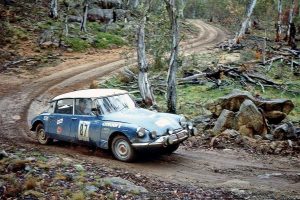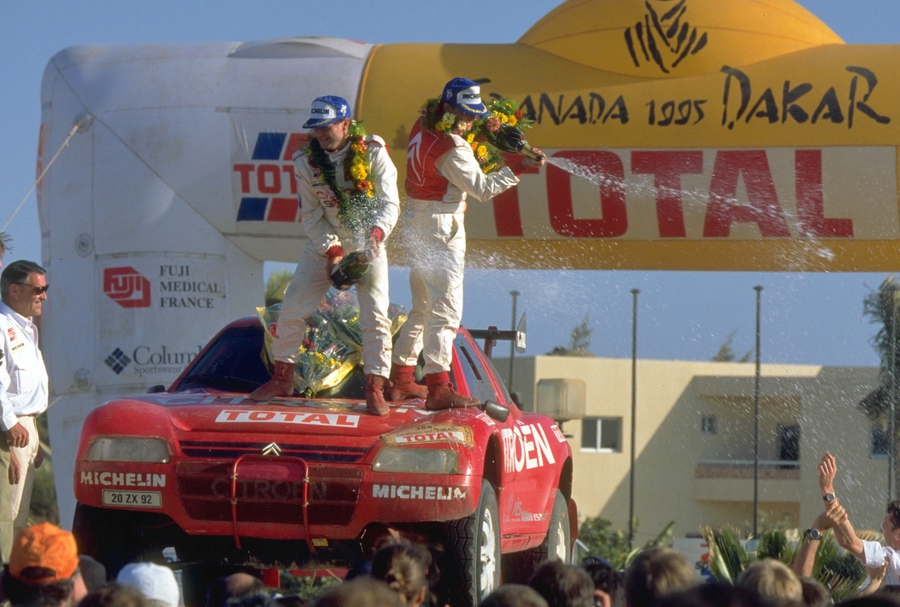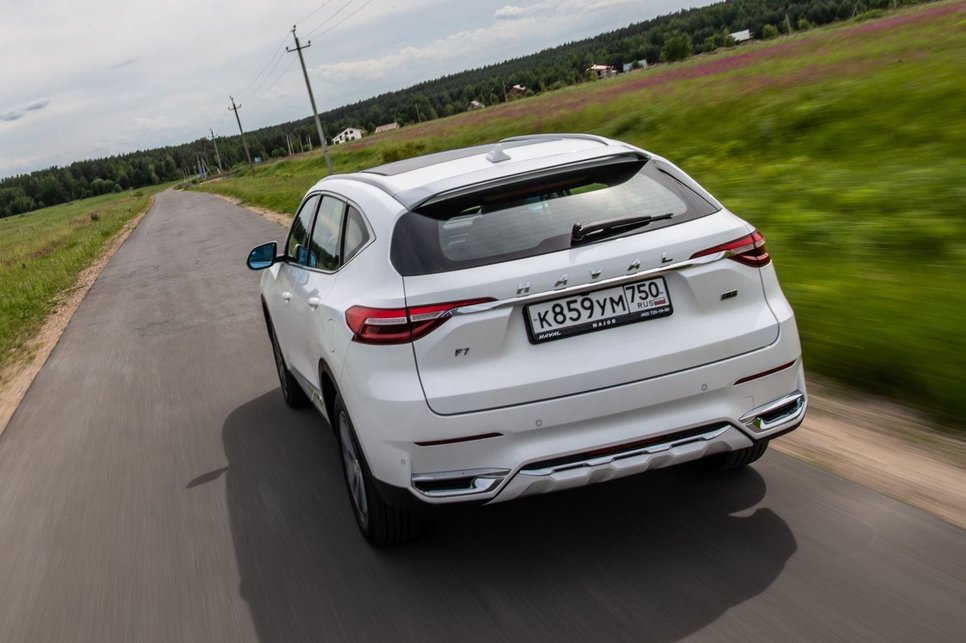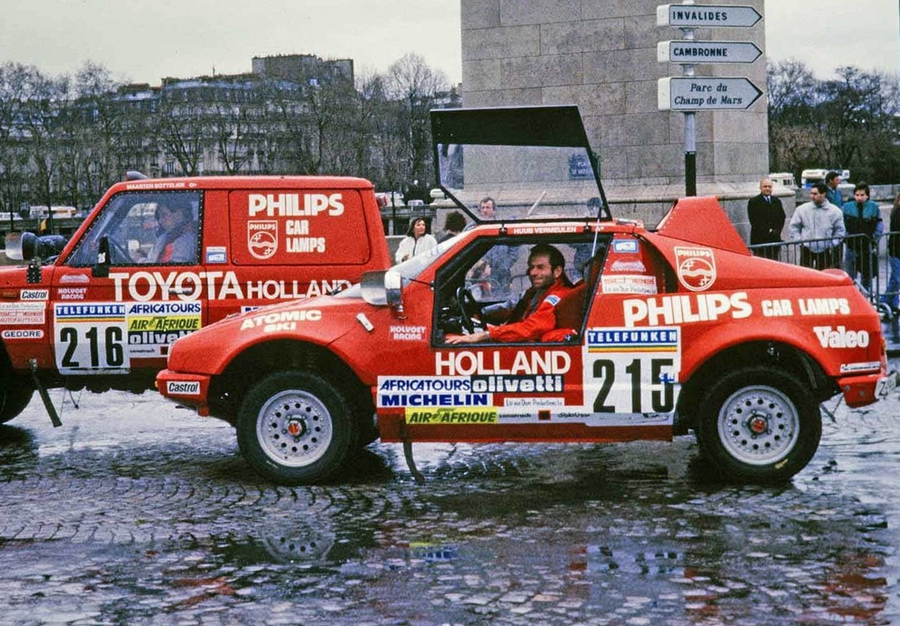Total and Citroen: to win across continents
 London-Sydney ‘1968
London-Sydney ‘1968
As soon as Citroen and Total signed an agreement on commercial and technological partnership in 1968, they had to pass an aptitude test in the same way as an external participant. A little earlier, two British publications offered to hold the automobile “Olympic Games” once in four years – transcontinental marathons. It was believed that they would attract investment in the stagnant post-war economy of the British Commonwealth and that such a racing format would be best suited for cars of English brands. And the first of them, starting from Great Britain and finishing in Australia, the most southern of its dominions (half of the race was held in ex-colonies of Great Britain), and became a baptism of fire for the newly baked union.
The route of the race was more like a snake getting rid of the old skin: London-Kale-Paris-Turin-Belgrade-Istanbul-Sivas-Erzincan-Tehran-Kabul-Delhi-Bombay-Fremantle-Yuanmi-Lake-King-Seduna-Mingeri-Omeo-Sydney . And this is all on the roads, not blocked for other road users. 400 hours without a break for food and sleep, at the limit of the capabilities of equipment and crews. On stony paths, broken primers, high-altitude serpentines, kangaroos swarming with uteks and completely off-road of three continents.
Citroen Total 50
Alas, the outcome of the 16000-kilometer marathon was decided by an accident that happened 153 km from Sydney. On a suburban road with decent coverage in broad daylight, the Citroen DS 21 confidently headed the marathon of Jean-Claude Augier and Lucien Bianchi ran into the oncoming Mini. The local press laid the blame on the Frenchman – they say, he was driving too fast, fell asleep at the wheel and forgot all about left-hand traffic. Supporters of the same conspiracy theories accused a local driver of an accident, who literally rammed a racing DS. The fact is that the British crew followed the British car – the “big Mini” – the BMC 1800 made on its base. The disqualification of the British crews at Rallye Monte Carlo (which actually passes on the roads of France), which resulted in the non-leading ones won with a serious margin of Mini, and Citroen, divided the entire motor sport world into two camps …
Of course, Ogier (father of the current WRC champion) and Bianchi were called the main losers of the race, who for the scale and representativeness was called the “Rally of the Century”. But it was also obvious that the cause of the defeat was a human error, while there were no complaints about the tandem Citroen-Total – he passed all tests with honor. What can not be said about the other participants: only 54 of the 98 crews who started from Wembley Stadium reached the finish line.
Citroen Total 50In addition to participation in the British marathons, Total and Citroen managed to hold their own, not less ambitious competitions: Paris-Kabul-Paris, Raid Carol Arctique-Paris, Raid Afrique, Paris-Persepol-Paris. The latter was especially exhausting: 1,300 young people from various sectors of society set off on a journey of 13,500 km in length.
London-Sahara-Munich ‘1974
Of the seven dozen crews that started in London, exactly five have covered the African distance – the rest either get lost or dig in the biggest sandbox in the world. The organizers, fearing that no one will reach the finish line at this pace, have backdated the most difficult special stages. And formally the race ended 19 cars, but the latter was behind the winner – the crew of the team Total Citroen – by … 18 days. Although the whole race – with solemn starts and finishes, plus a pair of ferry crossings between continents, lasted from May 5 to 25. All in all, in the first ten it turned out to be just three “chevrons”, which ensured the French victory in the competition of producers.
Citroen Total 50The longest race of the mid-70s – London-Sahara-Munich almost ended in the middle. After the special stages in the Sahara, only 5 of the 70 crews remained in the ranks and the organizers had to retroactively exclude some of the most “similar” special stages. Nevertheless, the last of those who finished behind the winner – the crew of the Total Citroen team – by 18 days.
London-Sydney’1977
10 years after the start of the very first rally of the century, it was decided to return to the original – Anglo-Australian – route. But the length has increased from the previous 16 thousand km. twice, which were assigned 32 days – thousands of kilometers a day! To win the team competition, it was necessary to show not only high speeds, but also stability, finishing without losses. Specially for such a task, Paddy Hopkirk returned, leading both one of the four crews and the entire team of Total Citroen. He coped brilliantly: all the CX 2400 reached the finish line (3rd, 4th, 7th and 10th places), winning the coveted Constructor’s Trophy.
Alas, defending your title in Total Citroen supersarafes was not destined – London-Sydney was the last of such competitions. And the team focused on African (Morocco, Côte d’Ivoire, Senegal, Algeria) rally as the most difficult in the championship calendar. In 1978, some of these special stages will form the basis of the famous rally.


